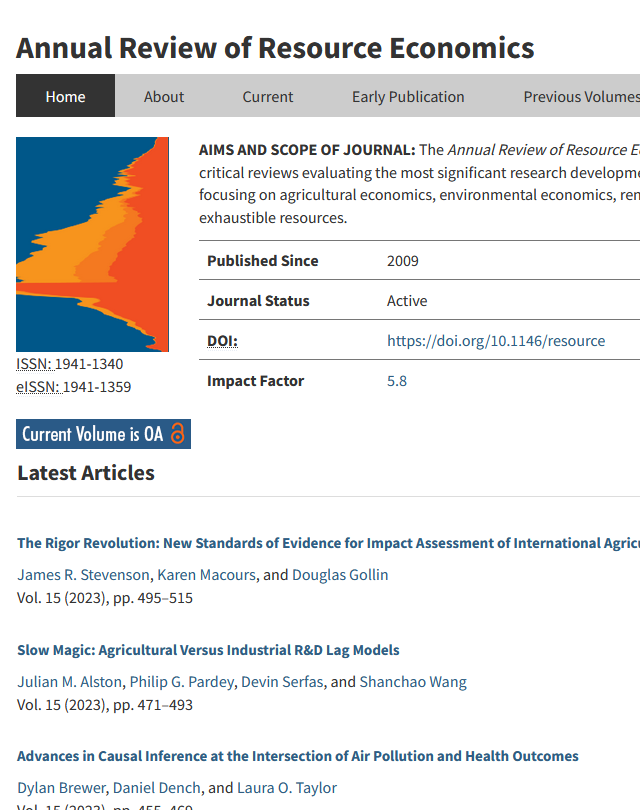二氧化碳去除的经济学
IF 8.4
2区 经济学
Q1 AGRICULTURAL ECONOMICS & POLICY
Annual Review of Resource Economics
Pub Date : 2025-07-07
DOI:10.1146/annurev-resource-010224-094505
引用次数: 0
摘要
二氧化碳去除(CDR)是气候政策中的一个新兴话题。我们回顾了关于CDR治理的新兴经济学文献,并讨论了政策设计和制度。我们首先评估CDR在包括减排和适应在内的气候政策组合中的作用。节省成本的技术进步可能使CDR成为气候政策的游戏规则改变者:CDR创造了新的部门、跨期和国际灵活性,从而降低了总体成本,并允许在暂时超调后回到温度目标。此外,CDR可以减少国际合作的问题,因为通过化石燃料市场的供应侧泄漏大大减少。一个关键的挑战在于其治理和激励结构,碳储存的非永久性和承诺未来CDR的公司的违约风险使其复杂化。对于CDR治理,我们调查了通过价格工具激励移除或将CDR纳入(修改后的)排放交易计划的方法。本文章由计算机程序翻译,如有差异,请以英文原文为准。
The Economics of Carbon Dioxide Removal
Carbon dioxide removal (CDR) is an emerging topic in climate policy. We review the nascent economic literature on the governance of CDR and discuss policy design and institutions. We first assess the role of CDR in climate policy portfolios that include abatement and adaptation. Cost-saving technological progress could make CDR a game changer in climate policy: CDR creates new sectoral, intertemporal, and international flexibilities, which reduce overall costs and allow a return to a temperature target after temporary overshooting. Moreover, CDR can reduce the problem of international cooperation due to substantially lower supply-side leakage via fossil fuel markets. A key challenge lies in its governance and incentive structure, which are complicated by the nonpermanence of carbon storage and default risks of the firms committed to future CDR. For CDR governance, we survey approaches that incentivize removals by price instruments or include CDR in (modified) emissions trading schemes.
求助全文
通过发布文献求助,成功后即可免费获取论文全文。
去求助
来源期刊

Annual Review of Resource Economics
AGRICULTURAL ECONOMICS & POLICY-
CiteScore
9.40
自引率
0.00%
发文量
34
期刊介绍:
The Annual Review of Resource Economics provides authoritative critical reviews evaluating the most significant research developments in resource economics, focusing on agricultural economics, environmental economics, renewable resources, and exhaustible resources.
 求助内容:
求助内容: 应助结果提醒方式:
应助结果提醒方式:


